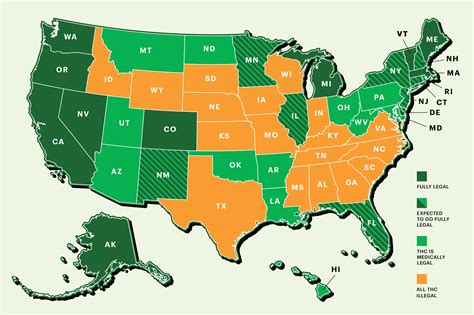
The federal status of marijuana remains as a Schedule I substance under the Controlled Substances Act, indicating no accepted medical use and a high potential for abuse. Despite this, the landscape of marijuana policy at the state level has changed significantly, with a substantial policy gap emerging between federal and state laws.
As of March 1, 2023, 21 states, along with Washington D.C., Guam, and the Northern Mariana Islands, have enacted legislation permitting recreational marijuana use. This shift in policy highlights the evolving perception and legalization of marijuana at the state level, diverging from longstanding federal prohibitions.
The experimentation with marijuana liberalization policies started in the 1970s with state decriminalization, expanded through patient medical access laws in the 1990s, and has seen significant growth in the 21st century with many states legalizing recreational use. No state has reversed its stance on marijuana legalization since California first permitted medical use in 1996.
Marijuana’s history in the United States has seen its ups and downs. Initially used therapeutically in the 1800s, it faced a ban for recreational use in 1937, with medical access becoming increasingly difficult. The narrative surrounding marijuana’s potential for abuse and its illegality at the federal level persists, with the DEA emphasizing its Schedule I classification.
Public health perspectives on marijuana use are critical, with the CDC reporting that in 2019, approximately 48.2 million people, or about 18% of Americans, used marijuana at least once. The public health entity is actively working to understand marijuana’s impact, focusing on concerns such as trafficking, marketing, and underage sales.
The federal government, while maintaining marijuana’s illegality, recognizes the changing state-level policies. President Biden has made statements on marijuana reform, reflecting the evolving dialogue on cannabis within the nation’s leadership.
In conclusion, while marijuana remains a federally illegal drug, states continue to adopt their policies, creating a patchwork of legalization that reflects a complex and changing relationship with this substance.
State Marijuana “Legalization” and Federal Drug Law: A Brief Overview
Drug Fact Sheet: Marijuana/Cannabis
Data and Statistics
Statement from President Biden on Marijuana Reform
Marijuana and Public Health